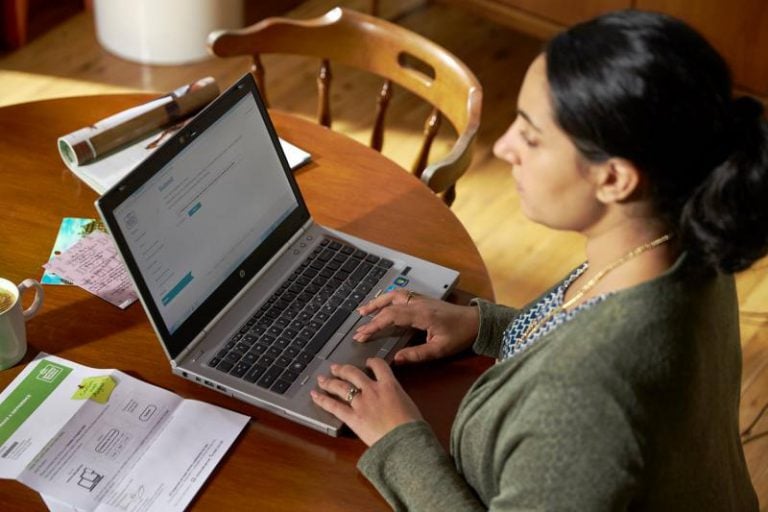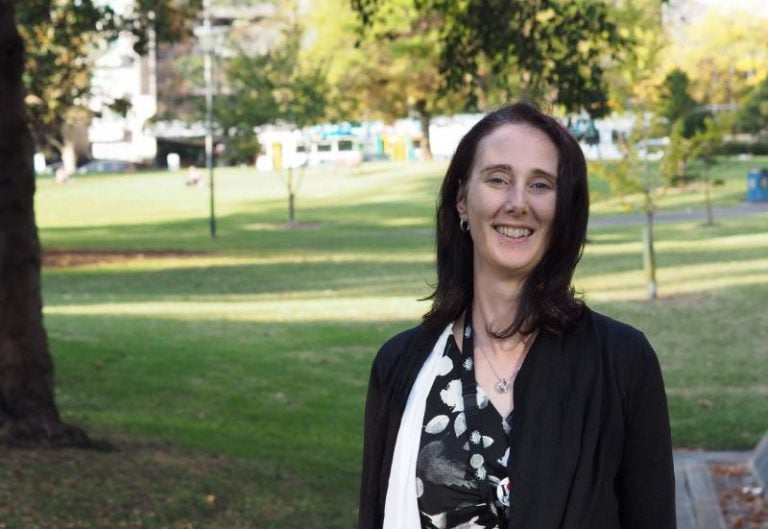For what is largely a routine procedure of everyday public administration, the census is causing a disproportionate amount of controversy. Most Australians have already received the letter providing them with a 12-digit code that enables them to go to the Australian Bureau of Statistics (ABS) website (census.abs.gov.au) and complete the online census form. This is probably the most important change in this year’s census, compared to previous years.
“We’ve seen society change and technology has advanced and there’s a community expectation that we use technology and give people this option to complete the census online,” says Victorian census director Annette Kelly.
“We think this model will cater to everybody; there will be people who will prefer to do it online and we give them more options than ever before,” she adds, stating that anyone who wishes to complete a printed form can order one.
Speaking to Neos Kosmos, Ms Kelly confirms this year’s census is the next step in a transition to an online census that has been happening for some time now.
“In 2011 and 2006, people got the paper form, but they could also do it online”, she says. “The big difference here is that most households will receive the letter instead of the paper form. On the back of the letter are instructions in Greek; for people who need language help there is information for the use of a translating and interpreting service, which is a very important option.”

ASSISTANCE TO THE TECHNOLOGICALLY CHALLENGED
Language issues aside, the online census can be challenging for people who are not familiar with new technology, mostly the elderly.
“We really encourage people to ask friends and family if they need help completing their census, and the online version makes it possible for family to provide assistance from another location,” says Ms Kelly, adding: “If you are still struggling and don’t have anyone to ask, a census field officer may be able to provide some support when they are visiting your area. Though this might not happen until after census night, there’s no need to worry. You won’t get into trouble if you can’t submit your form until after 9 August.
“The Greek Community of Melbourne and Victoria is also prepared to offer assistance to anyone who wants to go to the Greek Centre and ask for a volunteer to help complete the online census form. The other important thing to bear in mind is that the census has to be completed ‘in relation to’ Tuesday 9 of August, not have to be completed on that day.
“You fill it in as if it was Tuesday the ninth,” explains Ms Kelly. “For most elderly people it wouldn’t matter if they filled it in two or three days before, or after. It’s in reference to that particular day, but as soon as you get your letter, it can be completed online. For instance, there is a question for people who work: ‘How did you travel to work on Tuesday the 9th August?’ So, you can answer in relation to that day but you can answer a couple of days after. Or, if you always go to work in the same way, driving, you fill it out earlier.”
Having said that, she clarifies other concerns, regarding the whereabouts of people on that date. “You don’t have to complete the census if you’re out of the country on the night. If you’re travelling interstate and staying at a hotel, you’ll receive a form at the hotel; If you’re staying with family you’ll put your name in the census of that household,” she says.
CHANGES IN CONTENT
Apart from the procedure, there are other changes this year in terms of content. For instance, the question regarding religion has changed. “The option ‘no religion’ is now first,” says Ms Kelly, explaining that “the format of that question is consistent with the format of questions in the rest of the form. The other very important change in the census this time around is the part where people are asked where their parents were born. In previous censuses, the two options were ‘Australia’ and ‘overseas’; now, in this census form, you can specify the country that your parents were born in. This will provide a lot more information for ethnic communities to understand how large they are and what they look like.”

PRIVACY CONCERNS
For some, this means that the government is trying to target specific migrant communities. It is one of the accusations that abound as the census date approaches, and many express concerns for ‘Big Brother’ like prying into people’s lives. The census itself is seen by some groups as a large-scale invasion of privacy, especially since this year, the ABS is keeping records of names and addresses.
“We’ve always collected names and addresses in the census. This has been compulsory,” says Ms Kelly. “The difference is that this year the names and addresses will be retained for up to four years. But the very important thing is that these names and addresses will be separated and stripped off from all the census data, so the census data will be anonymised,” she adds. Then, why keep track at all?
“The reason we’re doing it is that we look to use other government data to create more statistics. For example, if we want to be able to look at how education impacts on whether people end up in employment, what we can do is combine de-identified census with some form of education data to show what types of education can lead to jobs and higher employment, that sort of thing,” she says.
Critics of this process note that census data are accessible to independent researchers.
“The census data is available as statistics to anybody who wants to do research and make decisions,” confirms Ms Kelly. “but none of the data released has any information about an individual. No one can possibly identify anyone from those statistics”.
In conclusion, the Victorian census director is adamant. “The ABS keeps everybody’s information private and confidential – and that’s by law. It cannot share people’s personal information; it never has or never will provide that information to any other government agency or organisation. The only thing that the ABS does is it creates statistics; the only thing that we release are numbers,” she points out.
* To order a printed census form call 1300 214 531. For translating and interpreting services, call 131450. Those requiring further assistance can visit the Greek Centre and ask a volunteer to help complete the census form. Anyone interested should call (03) 9662-2722 or email info@greekcommunity.com.au
